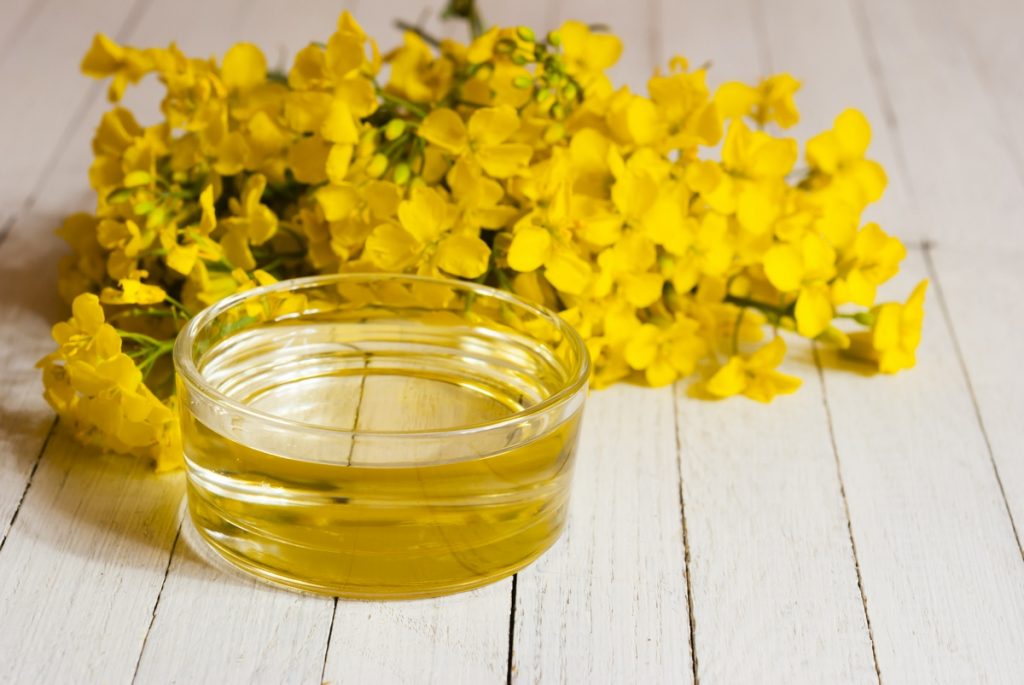
How to introduce Rapeseed Oil into your baby’s diet?
Rapeseed oil comes from the black seeds of the rapeseed plant, Brassica napus, which is the same Brassica family that cabbage, cauliflower, and broccoli come from. The plant’s flowers are bright yellow, and the oil is derived by crushing the seeds. One of the driving forces behind rapeseed oil’s popularity is its nutritional benefits. Most people are aware of olive oil’s healthy credentials as it’s the backbone of the Mediterranean diet.
Rapeseed oil makes baby food healthier. It is best to wait till your baby is at least six months old before you introduce rapeseed oil in her diet. Once your baby has tried her first foods at six months, you can start introducing her to a range of new flavors. You can include rapeseed oil in your baby’s diet by preparing creamy soups, mashes and using rapeseed oil to fry the ingredients used in the recipes.
Rapeseed Oil is one of the most beneficial and heart-friendly for children. You can use rapeseed oil for baking, coating non-stick pans in which you prepare food for your baby, and any other uses where you wish to take advantage of the bland taste of rapeseed oil as compared to the distinctive flavor of olive oil.
Health Benefits of Rapeseed Oil for Children
Contrary to popular belief, rapeseed oil is actually a healthier oil as compared to olive oil for your baby. Let us have a look at few of the health benefits of rapeseed oil.
All oils contain a mixture of saturated and unsaturated fats, but one or the other will typically dominate.
Rapeseed oil is packed with the both poly- and mono- unsaturated fat but low in saturated fat.
Rapeseed oil has many health benefits, including the following:
- It is high in the essential fatty acids omegas 3, 6, and 9.
- Its omega 3 level is 10 times that of olive oil.
- It has the lowest saturated fat levels of any oil, half that of olive oil.
- It is an excellent source of vitamins E and K.
- It has virtually no trans-fats.
- It has no artificial preservatives.
- It is not genetically modified.
These health benefits are accessible to almost everyone since rapeseed oil fits well into a vegetarian, kosher, halal, or gluten-free diet.
Using Rapeseed Oil in Cooking For Your Baby
Since rapeseed oil has an exceptionally high smoke/burn point, it can be used to cook food at very high temperatures.
The high heat will not break down its fats and destroy its flavor and texture. Rapeseed oil has a much higher burn point than does olive oil.
Rapeseed oil is found in a wide range of naturally delicious flavors. It is not only good for frying, baking, roasting, and deep fat frying.
Some helpful ideas on how to use rapeseed oil and introduce it into your baby’s diet include the following. When cooking with rapeseed oil for your baby you need to keep the following points in mind to best utilize its many health benefits without affecting your baby’s health.
- Use, but use sparingly. Even healthy oils like rapeseed oil are 99% fat and contain about 100 calories per tablespoon.
- Experiment with different brands of rapeseed oil to help you baby discover varying flavors and make it interesting.
- Use rapeseed oil instead of butter when baking to reduce your baby’s saturated fat intake.
- Try putting rapeseed oil on pizza either before or after cooking for a delicious taste. This way it will be easier to introduce it to your baby.
- Use rapeseed oil to stir-fry vegetables. If your baby is very young you can use rapeseed oil to stir fry the vegetables before making a mash or puree for added flavor.
Precautions to take while using Rapeseed Oil for making your baby’s food
Just like any other fat source a small, balanced intake of essential fatty acids and omega 6 and omega 3 found in rapeseed oil are known to support good health in your baby. However, moderation in the amount used is a must to eliminate the toxic pro-inflammatory omega 6s from harming your baby’s body.
There is also a risk of allergy, just like with any other food items. It is always best to look out for signs of an allergic reaction to rapeseed oil in your baby. Introduce rapeseed oil slowly into his or her diet to eliminate possible allergic reaction. In case you see any reactions such as sneezing, itchy and runny nose, watery eyes, rashes, etc discontinue use immediately.
In case you are unsure and have questions regarding using rapeseed oil in your baby’s food, it is always best to consult with your child’s pediatrician. He or she will be able to answer your questions and discuss your concerns in more thorough detail.